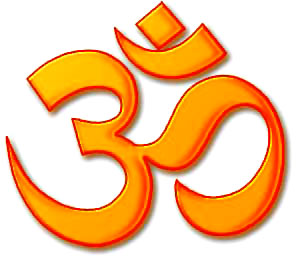ওঁ (Assamese) [ Roman: o`~]
Loading AI analysis...
Loading Wikipedia extract...
Contributed by: Anjali Sonowal on 2009-10-07
1. (Interjection) used to express affirmation or assent or to mark the addition of something emphasizing and amplifying a previous statement কোনো কথাৰ প্ৰতি সমৰ্থন বা সন্মতি বুজাবলৈ বা আগেয়ে দিয়া কোনো বক্তব্যৰ সৈতে একমত থকা বুজাবলৈ ব্যৱহাৰ কৰা শব্দ
Contributed by: Anjal Borah (অঞ্জল বৰা) on 2009-05-26
2. (Proper Noun) The supreme and most sacred syllable, consisting in Sanskrit of the three sounds (a), (u), and (m), representing various fundamental triads and believed to be the spoken essence of the universe. It is uttered as a mantra and in affirmations and blessings. this mantric word thought to be a complete expression of Brahman and interpreted as having three sounds representing Brahma or creation, Vishnu or preservation, and Siva or destruction, or as consisting of the same three sounds, representing waking, dreams, and deep sleep, along with the following silence, which is fulfillment. বেদৰ মূল মন্ত্ৰ৷ ঈশ্বৰৰ স্ৰজন, পালন আৰু সংহৰণ এই তিনি শক্তি বুজোৱা শব্দ৷ ‘অ’, ‘উ’ আৰু ‘ম’ এই তিনিটা ধ্বনি মিলি ওঁ হৈছে৷ ‘অ’ মানে পালন কৰ্তা বিষ্ণু, ‘উ’ মানে সংহাৰ কৰ্তা শিৱ, আৰু ‘ম’ মানে সৃষ্টি কৰ্তা ব্ৰহ্মা৷ সৃষ্টি, স্থিতি আৰু পলয়ৰ অধিকাৰী পৰম ঈশ্বৰৰ স্বৰূপক ‘প্ৰণৱ’ ওঁ শব্দই একে আখৰৰে চমুকৈ এক মূৰ্হুত্বতে বিজ্ঞাপন কৰে দেখি ওঁ পৱিত্ৰ আৰু জপৰ বিধান৷

